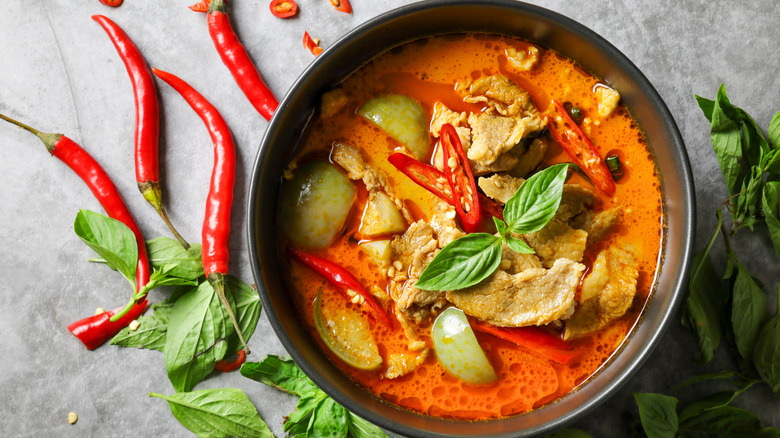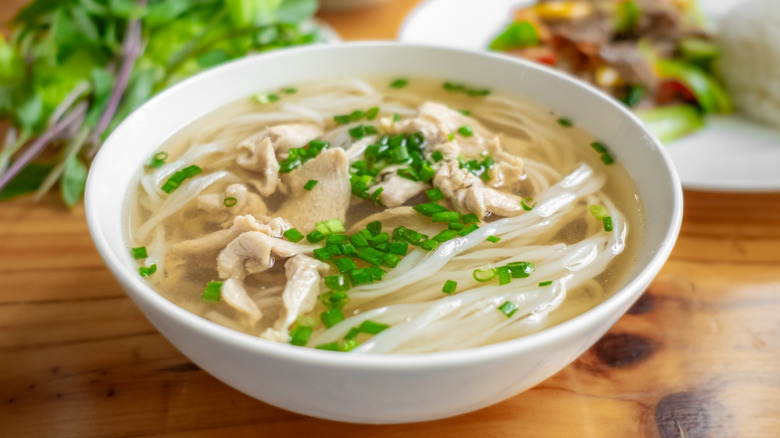Should You Steer Clear Of Spicy Foods During A Heatwave?
Loving spicy foods says a lot about a person's personality, and eating fiery dishes in the middle of summer also means that they know how to stay cool. It turns out that certain foods and drinks can help cool you down ... kind of. If you want to avoid spicy foods during a heat wave because you're afraid it will only heat you up further, know that the heat will pass as the warming flavors cause you to sweat. The sweat will then help your body cool down, at least a little bit.
This odd occurrence is a result of molecules that make spicy food, well, spicy. Humans have a receptor called a TRPV1 that detects dangerous temperatures like those above 140 degrees Fahrenheit. Foods like peppers contain a molecule called capsaicin, which, upon touching your tongue, triggers that receptor and tricks your brain into believing you're ingesting something that is far too hot temperature-wise. Spicy food does even more work by increasing blood circulation, which can also cause you to sweat more.
However, sweat only cools you down if it evaporates rather than drips off you. This is because your excess body heat evaporates the sweat and dissipates into the air with it, leaving your body feeling slightly cooler.
It's not just spicy foods that make you sweat
Being from an area where air conditioning isn't common, eating copious amounts of spicy food to sweat it out sounds lovely to me. However, if improving meals with hot sauce isn't your thing, this same sweaty effect can happen after eating non-spicy food, too. A 2012 study published in the Acta Physiologica journal found that people who consumed warm water before engaging in physical activity were able to maintain a lower body temperature — the warm water triggered heavier sweating. However, the caveat still stands that the sweat must evaporate to actually cool you off — heavy clothes and humid environments make this nearly impossible.
This concept can be applied to various foods, from soup to freshly made mashed potatoes. As long as the food is hot, there's a chance it will increase the amount you're sweating and thus cool you down. It's important to make sure you're replacing what is lost in sweat with water and electrolytes, though, so you don't trade the problem of overheating for the problem of dehydration. The next time you're living through a heatwave and someone tells you to avoid spicy foods, let them know that there are some cooling benefits to sweating the summer away.

